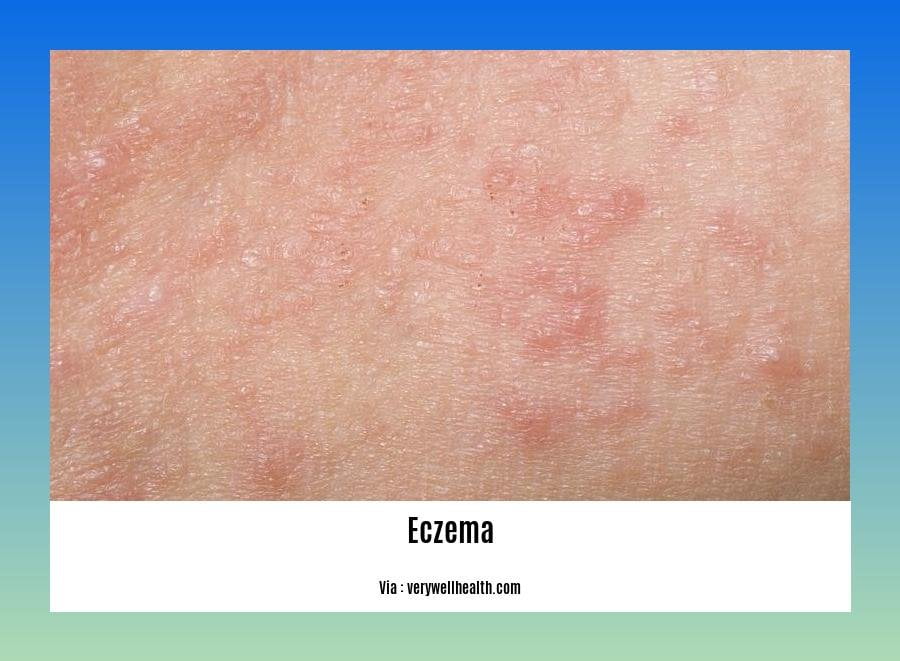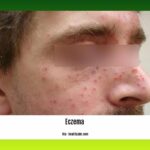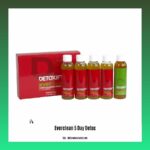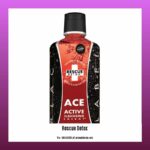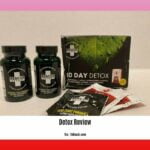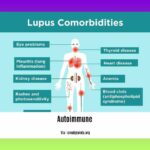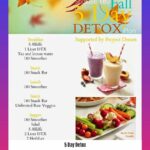Unlock the Secrets of a Detox Diet for Eczema: A Natural Approach to Managing Skin Conditions
Are you tired of dealing with the discomfort and frustration of eczema? If so, you’re not alone. This common skin condition affects millions of people worldwide, causing itchy, inflamed patches that can be difficult to manage. While there are many treatments available, one natural approach that is gaining attention is a detox diet specifically designed to help improve eczema symptoms. In this article, we will explore the benefits of a detox diet for eczema, provide you with a comprehensive eczema detox food list, and guide you through a 30-day eczema diet and a 3-day cleanse. Additionally, we will delve into how liver detox can significantly impact eczema flare-ups. So, let’s unlock the secrets of a detox diet for eczema and discover how it can help you achieve healthier, glowing skin.
Key Takeaways:
- Drinking more water can help improve skin health and reduce inflammation associated with eczema.
- Eating more fruits and vegetables provides vital nutrients and antioxidants that support healthy skin and reduce eczema symptoms.
- Switching to organic foods eliminates pesticides and chemicals that may trigger eczema flare-ups.
- Taking fish oil or omega-3 fatty acid supplements can help reduce eczema symptoms due to their anti-inflammatory properties.
- Taking vitamin D, vitamin C, probiotic, or zinc supplements supports immune function and maintains healthy skin, benefiting individuals with eczema.
- Cooking with oils such as primrose oil, olive oil, cod liver oil, hempseed oil, or coconut oil can moisturize and reduce inflammation for eczema-prone skin.
- Consuming a detox drink made of celery, pears, carrots, beetroot, iceberg lettuce, red cabbage, parsley, and mung bean sprouts provides nutrients and antioxidants to support skin health.
Remember, these recommendations are not a cure for eczema but can be used as part of a comprehensive approach to manage symptoms. Always consult with a healthcare professional before making significant dietary changes or adding supplements.
Detox Diet for Eczema
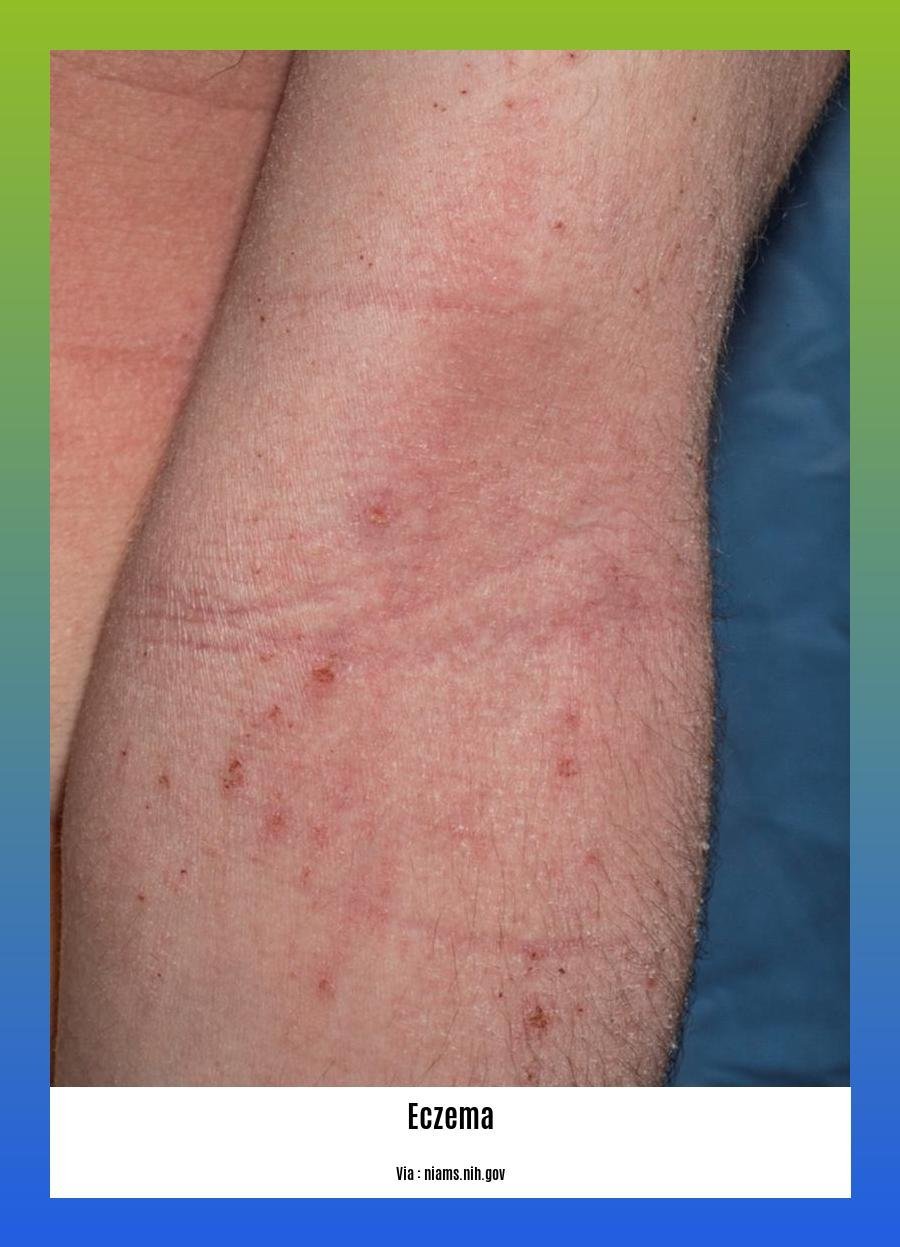
Living with eczema can be challenging, but there are natural approaches that may help manage its symptoms. One such approach gaining popularity is a detox diet specifically tailored for eczema. In this article, we’ll explore the potential benefits of a detox diet for eczema and the key elements that make it effective.
Understanding Eczema and its Triggers
Before diving into the detox diet for eczema, let’s briefly understand the condition itself. Eczema is a chronic skin condition characterized by dry, itchy, and inflamed patches. While the exact cause of eczema is yet to be fully understood, it is believed to be a combination of genetic and environmental factors.
Various triggers can exacerbate eczema symptoms, including certain foods, environmental allergens, stress, and hormonal changes. This is where a detox diet may come into play – by eliminating potential triggers and supporting overall skin health.
The Potential Benefits of a Detox Diet for Eczema
A detox diet, when done correctly, can provide several benefits for individuals with eczema.
1. Reducing Inflammation and Irritation
Inflammation lies at the core of eczema, leading to itching, redness, and discomfort. A well-planned detox diet can help reduce inflammation by eliminating foods that may trigger an immune response or contribute to inflammation in the body.
2. Supporting Skin Health
Nutrition plays a significant role in skin health, and a detox diet focused on eczema aims to provide the body with essential nutrients to support the skin’s barrier function. By incorporating a variety of fruits, vegetables, and healthy fats, you can provide your body with the building blocks it needs to maintain healthy skin.
3. Hydrating and Nourishing the Skin
Staying hydrated is vital for overall health, and it holds true for eczema as well. A detox diet for eczema often emphasizes increasing water intake to keep the skin hydrated from within. Additionally, incorporating healthy fats like primrose oil, olive oil, or coconut oil can nourish the skin and help alleviate dryness.
Key Elements of a Detox Diet for Eczema
Now that we understand the potential benefits, let’s explore the key elements that make up a detox diet for eczema.
1. Hydration: Drink Up!
Staying hydrated is essential for healthy skin. Increase your water intake throughout the day to keep your skin hydrated and support the detoxification process.
2. Embrace Fruits and Vegetables
Include a wide variety of fruits and vegetables in your diet as they contain essential nutrients, vitamins, and antioxidants. These can support overall skin health and reduce inflammation.
3. Opt for Organic Foods
To minimize exposure to potential triggers, opt for organic foods. These are free from pesticides and chemicals that may exacerbate eczema symptoms.
4. Incorporate Essential Fatty Acids
Omega-3 fatty acids found in fish oil or certain plant-based sources like flaxseeds and chia seeds have anti-inflammatory properties. Consider incorporating these into your diet or supplementing with fish oil capsules.
5. Supplement Wisely
Certain supplements, such as vitamin D, vitamin C, probiotics, and zinc, may support immune function and maintain healthy skin. Consult with a healthcare professional to determine if these supplements are suitable for you.
6. Healthy Oils for Cooking
Cooking with oils like primrose oil, olive oil, cod liver oil, hempseed oil, or coconut oil can provide moisturizing and anti-inflammatory benefits to eczema-prone skin.
7. Try a Detoxifying Drink
Consider adding a detox drink to your routine, made from celery, pears, carrots, beetroot, iceberg lettuce, red cabbage, parsley, and mung bean sprouts. This drink is packed with nutrients and antioxidants that can support skin health.
It’s important to remember that a detox diet for eczema is not a cure-all, and individual results may vary. It’s always best to consult with a healthcare professional or a registered dietitian before making any significant changes to your diet or adding supplements.
In conclusion, a detox diet tailored for eczema holds promise as a complementary approach in managing skin conditions. By focusing on hydration, incorporating nutrient-rich foods, and eliminating potential triggers, you can support your overall skin health and potentially alleviate eczema symptoms. Remember, every individual is unique, and what works for one person may not work for another. Listen to your body and seek guidance from qualified professionals to develop a personalized approach to managing your eczema.
Detox diet for eczema can help alleviate flare-ups. If you’re struggling with a detox eczema flare up, consider trying our specialized program. You can find more information about Detox eczema flare up here.
For those dealing with autoimmune disease, a detox is essential. Our program is designed specifically for Detox for autoimmune disease, ensuring your body gets the support it needs. Learn more about it here.
Looking for a reliable cleanse? Check out our Detoxify 5 day cleanse reviews to see what others are saying. Don’t just take our word for it! Read the reviews here.
Searching for an effective cleansing program? Detoxify ever clean 5 day cleansing program has received rave reviews. Discover more about it and read the testimonials here.
Eczema Diet 3 Day Cleanse
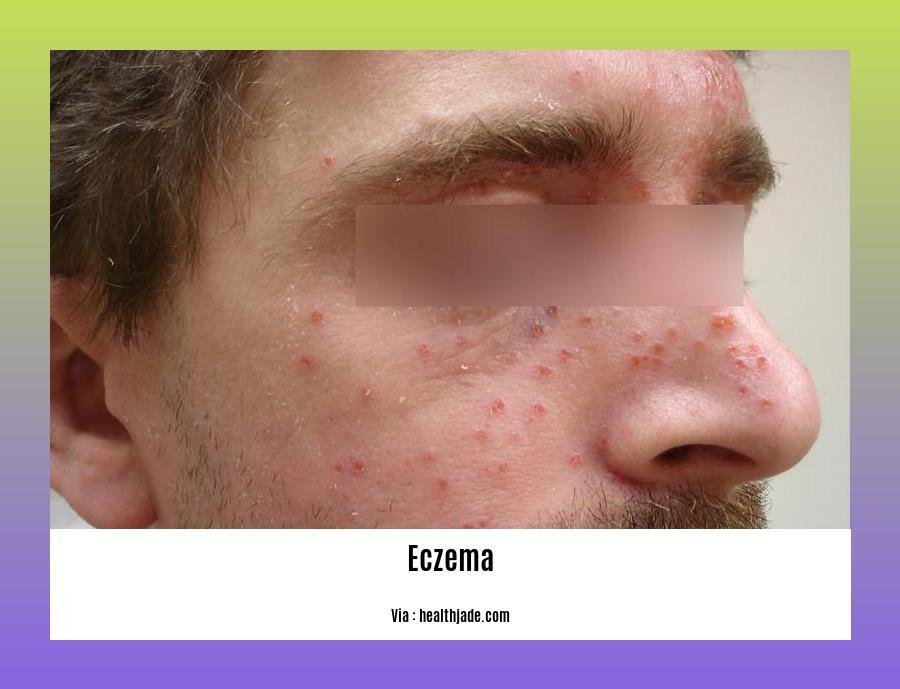
Are you struggling with eczema and looking for a natural approach to manage your skin condition? If so, you’ve come to the right place. In this article, we’ll unlock the secrets of a detox diet for eczema, specifically focusing on the Eczema Diet 3 Day Cleanse. Let’s dive in and explore how this cleanse can potentially help you find relief from your eczema symptoms.
What is the Eczema Diet 3 Day Cleanse?
The Eczema Diet 3 Day Cleanse is a short-term detox plan designed to eliminate potential food allergens, reduce inflammation in the body, and support healthy skin. This cleanse consists of consuming a specific recipe that includes celery, pears, carrots, beetroot, iceberg lettuce, red cabbage, parsley, mung bean sprouts, and optional Skin Friend AM supplement[^1^]. By incorporating these nutrient-dense foods into your diet, you may experience a reduction in eczema flare-ups and an overall improvement in your skin’s health.
How Does the Eczema Diet 3 Day Cleanse Work?
The Eczema Diet 3 Day Cleanse works by focusing on foods that are known to support skin health and minimize inflammation. Key components of this cleanse include fruits, vegetables, and antioxidant-rich ingredients. These foods provide essential vitamins, minerals, and phytonutrients that can nourish your skin and potentially alleviate eczema symptoms.
Additionally, the emphasis on organic produce is important, as it ensures that you’re avoiding pesticides and chemicals that may trigger eczema flare-ups in some individuals[^2^]. By opting for organic options, you’re taking a proactive step towards improving your skin’s condition.
Pros and Cons of the Eczema Diet 3 Day Cleanse
As with any dietary approach, it’s essential to consider the pros and cons. Here are some key points to keep in mind when considering the Eczema Diet 3 Day Cleanse:
Pros:
Short-term commitment: The cleanse lasts for only three days, making it a manageable option for individuals who may find longer-term diets challenging.
Focus on natural, whole foods: The cleanse emphasizes the consumption of fresh fruits and vegetables, providing vital nutrients that support overall health, including skin health.
Potential reduction in eczema flare-ups: This cleanse aims to reduce inflammation, a common trigger for eczema. By following the Eczema Diet 3 Day Cleanse, you may experience a decrease in the frequency and severity of your eczema symptoms.
Cons:
Limited duration: While the Eczema Diet 3 Day Cleanse can be a helpful tool for short-term relief, it’s important to remember that eczema is a chronic condition that may require ongoing management.
Not a one-size-fits-all solution: Eczema triggers can vary from person to person, and what works for one individual may not work for another. It’s crucial to personalize your approach and listen to your body’s unique needs.
Consultation with a healthcare professional: Before embarking on any significant dietary changes, it’s advisable to consult with a healthcare professional, such as a dermatologist or registered dietitian, who can provide personalized guidance.
Key Takeaways
- The Eczema Diet 3 Day Cleanse is a short-term detox plan aiming to reduce inflammation and support healthy skin.
- This cleanse involves consuming a specific recipe consisting of celery, pears, carrots, beetroot, iceberg lettuce, red cabbage, parsley, mung bean sprouts, and optional Skin Friend AM supplement.
- The cleanse focuses on natural, whole foods and emphasizes the importance of organic produce to avoid potential triggers for eczema.
- Pros of the Eczema Diet 3 Day Cleanse include short-term commitment, the inclusion of nutrient-dense foods, and the potential reduction in eczema flare-ups.
- Cons of the cleanse include the limited duration, the need for personalized approaches, and the importance of consulting with a healthcare professional before making significant dietary changes[^1^][^2^].
Sources
[^1^]: MiNDFOOD – Detoxing for Eczema
[^2^]: Verywell Health – Eczema: What to Eat for Better Management
Liver Detox For Eczema
Eczema can be a frustrating and challenging condition to manage. The good news is that there are natural approaches you can take to help alleviate its symptoms. One such approach is a liver detox diet. In this article, we will explore the benefits of a liver detox for eczema and how it can potentially improve your skin health.
Why is Liver Detox Important for Eczema?
The liver plays a crucial role in detoxifying our body and maintaining overall health. When it comes to eczema, a poorly functioning liver can contribute to the development and worsening of the condition. By supporting your liver health through a detox diet, you can potentially reduce eczema flare-ups and promote healthier skin.
Detoxifying Foods for the Liver
To detoxify your liver for eczema, it is recommended to incorporate specific foods into your diet that are gentle on the liver. These include celery, pear, carrot, and beetroot[^1^]. These vegetables are known for their cleansing and antioxidant properties, which can aid in the detoxification process. On the other hand, it is advised to avoid kale, spinach, and citrus fruits, as they can potentially burden the liver[^1^].
Nutrients for Liver Health
In addition to a liver detox diet, certain nutrients are essential for supporting liver health and detoxification. Vitamin D, zinc, and omega-3 fatty acids are particularly beneficial for individuals with eczema[^2^]. These nutrients can help in the elimination of toxins from the body, reduce inflammation, and support skin health. Consult with a healthcare professional to determine the right dosage of supplements for your specific needs.
Identifying Triggers
Understanding and avoiding triggers are key steps in managing eczema. While diet modification cannot cure eczema, it can help manage symptoms. By identifying what to avoid rather than what to eat, you can significantly reduce the chances of eczema flare-ups. It’s important to listen to your body and keep a journal to track any potential triggers that worsen your condition.
The Importance of Hydration and Moisturization
Drinking plenty of water and moisturizing your skin are crucial habits for managing eczema. Staying hydrated can help flush out toxins from your body, while moisturizing keeps your skin hydrated and reduces itching. Remember to choose moisturizers that are gentle on your skin and free from irritants.
So, while a liver detox diet is a potential avenue to explore for managing eczema, it’s important to approach it as part of a comprehensive approach to skin health. To achieve the best results, consult with a healthcare professional who can provide personalized guidance based on your individual needs.
Key Takeaways:
– A liver detox diet can potentially help manage eczema symptoms by supporting liver health.
– Incorporate liver-friendly foods like celery, pear, carrot, and beetroot into your diet.
– Nutrients such as vitamin D, zinc, and omega-3 fatty acids can aid in liver detoxification and support skin health.
– Identifying triggers and avoiding them can reduce the chances of eczema flare-ups.
– Stay hydrated and moisturize your skin to promote overall skin health.
Sources:
1. Detoxing for Eczema – MiNDFOOD
2. How liver health impacts Eczema – Top Eczema Treatments
FAQ
Q1: What is a detox diet for eczema?
A1: A detox diet for eczema is a dietary approach that aims to support skin health and manage eczema symptoms. It typically involves consuming nutrient-rich foods, avoiding potential triggers, and supporting liver detoxification processes.
Q2: Which foods are recommended in a detox diet for eczema?
A2: A detox diet for eczema often includes foods such as fruits, vegetables, organic foods, fish oil or omega-3 fatty acid supplements, vitamin D, vitamin C, probiotic or zinc supplements, and oils like primrose oil, olive oil, cod liver oil, hempseed oil, or coconut oil. Additionally, detox drinks made from a combination of celery, pears, carrots, beetroot, iceberg lettuce, red cabbage, parsley, and mung bean sprouts may be beneficial.
Q3: Can a detox diet cure eczema?
A3: A detox diet cannot cure eczema, but it may help manage symptoms. It is important to note that eczema is a chronic condition, and treatment involves a comprehensive approach that may include diet modification, skincare routines, and medical interventions.
Q4: Are there any specific foods to avoid in a detox diet for eczema?
A4: While specific food triggers vary among individuals, some commonly avoided foods in a detox diet for eczema include processed foods, dairy, eggs, soy, gluten, nuts, kale, spinach, and citrus fruits. It is recommended to identify personal triggers and avoid them to prevent flare-ups.
Q5: How does liver health impact eczema and what can be done to support it?
A5: Poor liver health can affect the condition of the skin, including eczema. Supporting liver health through a detox diet for eczema may involve consuming foods and supplements rich in nutrients like vitamin D, zinc, and omega-3 fatty acids. Additionally, drinking vegetable juices that are gentle on the liver, such as celery, pear, carrot, and beetroot, can aid in detoxification.
- Georgia Platform: A Southern Strategy, 1850s - March 31, 2025
- How many weeks is 40 days: Quick Conversion Guide for Accurate Results - March 31, 2025
- How many feet is 300 meters? 984 Feet: Understand Length Conversions Easily - March 31, 2025
